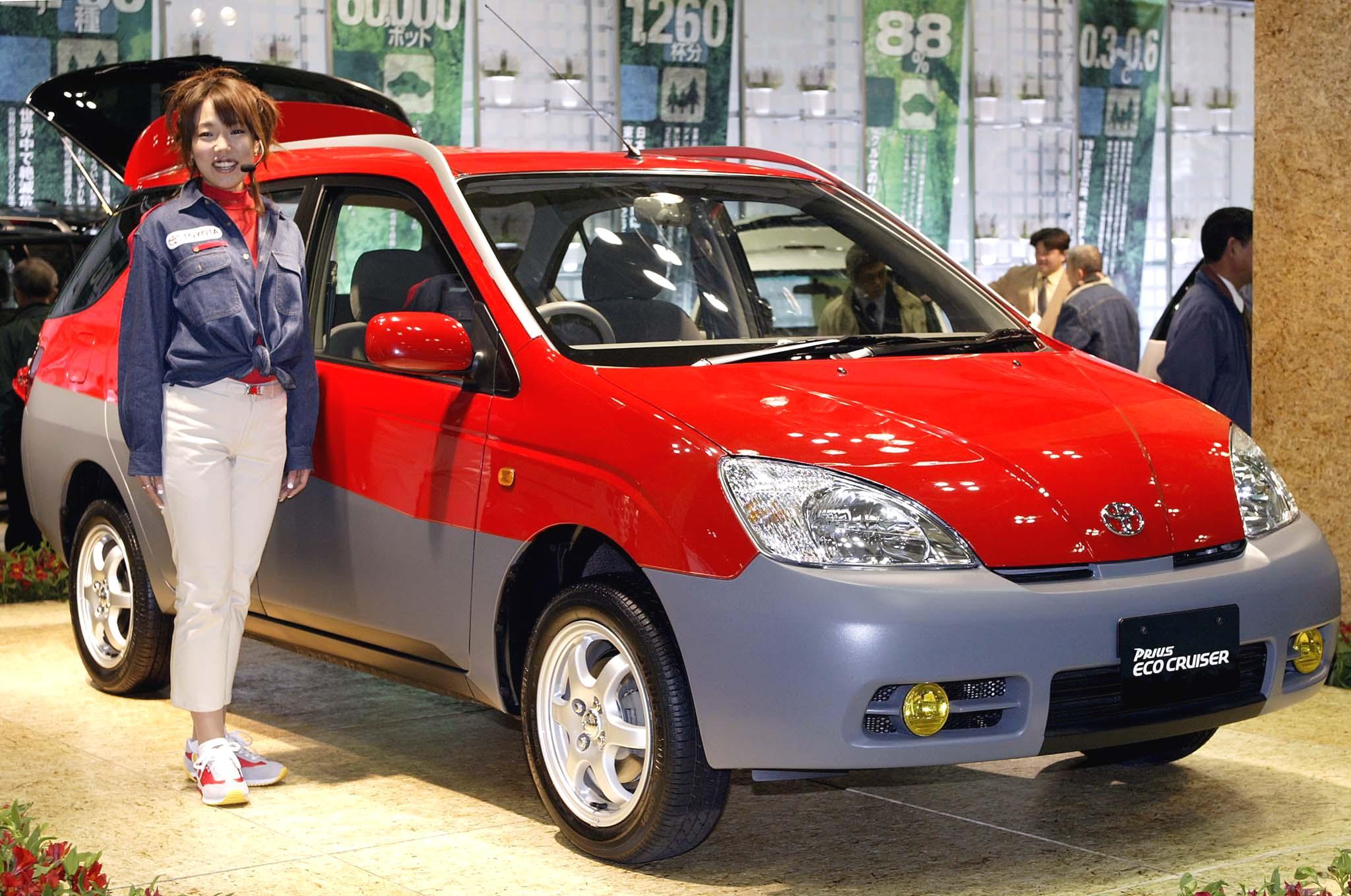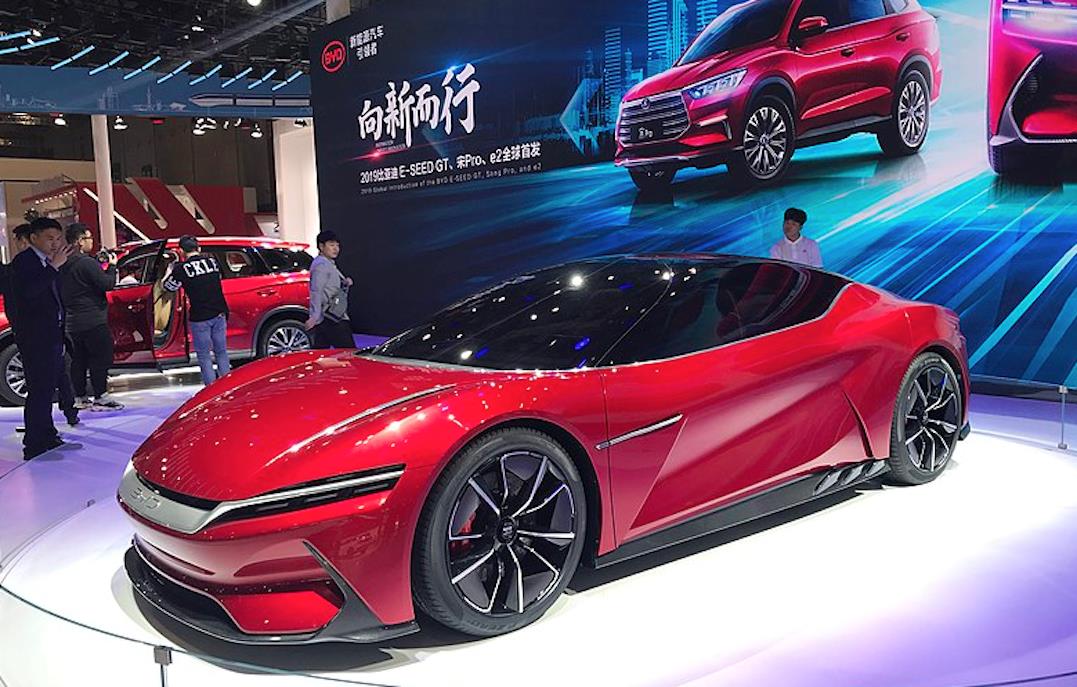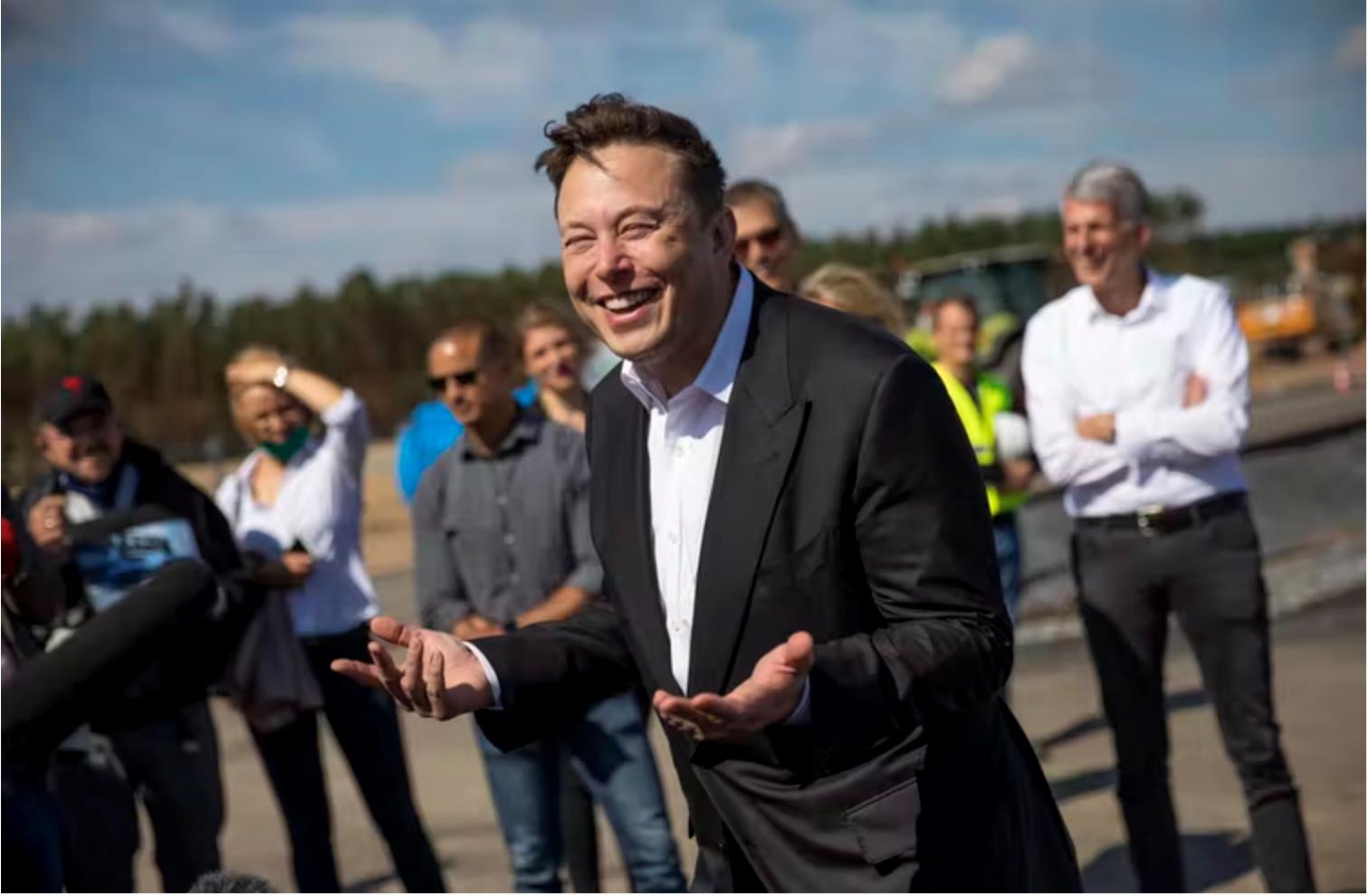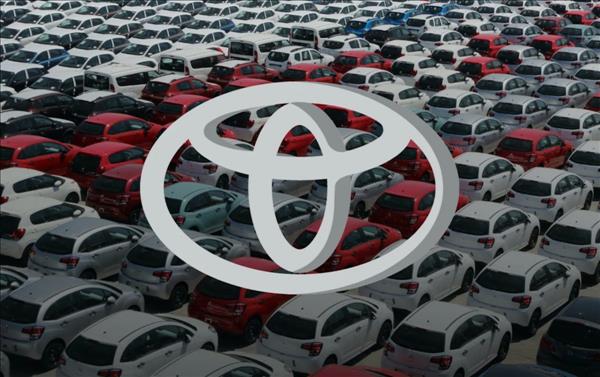(MENAFN- Asia Times) TOKYO – If you're wondering why Japan continues to make it easy for China's economy to race ahead, look no further than events at Toyota Motor.
In decades past, Japan's most celebrated name disrupted the US and Europe with innovation and productivity methods the West struggled to match.
Now, a similar disruption is happening to Toyota. The electric vehicle revolution Tokyo was slow to recognize risks driving a Japan Inc icon off the road. And Toyota's myopia is symptomatic of Japan's broad struggle to get its economic groove back.
The good news is that officials in Toyota City are realizing their blunder and mulling a noteworthy EV pivot. The bad news: it may already be too late as Tesla, Detroit, Germany and China beat Toyota to the punch.
What happened? Toyota's success since 2003 in selling hybrid cars like the Prius made it a darling of environmentalists and a bigger threat to Detroit. But in recent years, CEO Akio Toyoda, whose grandfather founded the automaker in 1937, dismissed the appeal of EVs.
In December 2020, Toyoda told an industry conference that EVs were overhyped and posed no threat to his company's global market share. What's more, he suggested that veering in the direction of Tesla and its ilk would devastate Asia's No 2 economy.
If Japan is too hasty in replacing gasoline-powered cars, Toyoda declared,“the current business model of the car industry is going to collapse,” killing millions of jobs.
In December 2021, Gill Pratt, CEO and chief scientist at the Toyota Research Institute, warned Japan against giving in to the“monoculture” of evs .
The period since hasn't been kind to Toyota's legacy as industry leader. Earlier this year, in January, CEO Toyoda announced he's stepping down.
As Toyoda said at the time:“The new team can do what I can't do. I now need to take a step back in order to let young people enter the new chapter of what the future of mobility might be.”

Akio Toyoda is stepping down after downplaying the EV revolution. Image: Facebook
Toyoda's mea culpa may be too little too late. Not only did his team cling stubbornly to hybrid technology consumers don't want, it poured billions into non-electronic alternatives like hydrogen power.
At the same time, the range of EVs that Toyota Motor teased in January might not hit the market until 2027 or 2028. Given the ever-accelerating timeline of EV innovation, it might as well be 2037.
Yet Toyota's own goal echoes past missteps by Japan Inc. Hybrid transport - the Prius, in other words - was always a compromise, not a technological destination. But because toyota had pioneered it, the company was loath to admit something better had just pulled up.
Students of the epic 1980s Betamax versus VHS battle find Toyota's missteps woefully familiar. At the time, proud Sony Corp executives argued their Betamax video technology was superior in all respects. The global market favored the more user-friendly VHS format.
It took Tokyo chieftains years to admit defeat. This cycle repeated itself in 2001, when Steve Jobs and his iPod revolution eclipsed the Walkman era and the mini-disc technology Japan struggled to preserve as the global market moved on.
Six years later, Apple Inc reset the tech world's clock again when Jobs debuted the iPhone. Here, too, Japan was slower to adopt that latest disruption. That was, in part, because NTT Docomo, Sharp and Toshiba already offered internet-ready handsets and digital camera features. Why bother with some old-hat gadget from Silicon Valley?
For all Tokyo's advancements, it never occurred to tech CEOs to load all that Japan Inc had already been offering onto a single, slickly designed handset. That complacency put Japan in catch-up mode as smartphones changed everything.
In the decade that followed, even Japanese consumers began to joke about their“Galapagos” flip-phones. It's a reference to the“Galapagos syndrome” that's long plagued Japan.
The dynamic at play here is the economic equivalent of the endemic species Charles Darwin studied off the coast of Ecuador. Like them, Japan makes highly evolved and distinct products. But all too often they're not suited to thrive beyond the water's edge.
In November 2016, Tokyo Governor Yuriko Koike lamented that the city's financial scene had also evolved into a closed-off“Galapagos.” She complained that“regulations and tax systems that are far from global standards have prompted the world's financial institutions to go to Singapore, Hong Kong and Shanghai where it's easier to do their jobs.”
Another glaring example: South Korean pop music enrapturing the globe, while J-pop inspires shrugs abroad. An even costlier one is how it's taken Toyota so long to admit that EVs, not hybrids, are now the global standard .

A Toyota employee displays the prototype model of the hybrid-engine SUV“Prius EcoCruiser” in Tokyo, on February 15, 2002. Photo: AFP / Yoshikazu Tsuno
Unfortunately for Japan's top company, says Michael Dunne, CEO at advisory firm ZoZo, the story has become about Toyota's“EV extremism,” and Wall Street investors are clamoring for a sharper detour.“The Street is not happy,” Dunne says.“It's saying 'hey Toyota, we want you to move faster.'”
This has Toyota making changes at the very top of the corporate ladder. On April 1, Koji Sato, 53, Toyota's chief branding officer, will take over as CEO. Toyoda, who held the top job since 2009, will become chairman.
For much of Toyota's tenure, the company was the globe's top-selling automaker. But 2020 was a real wake-up call as Elon Musk's Tesla surpassed Toyota's market value.
Tesla's success accelerated the move away from combustion engines, leaving Toyota in a difficult place. Toyota bet poorly on the future, assuming that there would still be a wide lane for gasoline-powered vehicles - and Prius-like hybrids.
Sato will have to hit the ground at 60 miles per hour to shift Toyota's EV trajectory into higher gear. Increasingly, Japanese regulators are leaning toward phasing out combustion vehicles.
Some analysts, it's worth noting, are optimistic about this changing of the guard to Sato, a mechanical engineer by training. Sato taking Toyota's wheel“will rejuvenate the firm's management while maintaining policy consistency,” says analyst Tatsuo Yoshida at Bloomberg Intelligence.
To be sure, Toyota hasn't exactly sat still. In April 2022, Toyota rolled out its first electric vehicle mass-produced for global markets: the bZ4X SUV. Sadly, it had to recall it soon after due to loose-wheel problems.
Months earlier, in December 2021, it unveiled plans to spend about 4 trillion yen (US$29.3 billion) to produce as many as 30 EV models. But when a Japan Inc icon says a grand plan will be done“by 2030,” investors get skeptical, especially as China raises its EV ambitions.
A February 3 Car and Driver article carried the headline“people's republic of evs .” It's argument that Chinese automakers BYD, Geely, Nio, and others are“getting ready to upset the automotive world order” could be Toyota's worst nightmare.

BYD's first model to sport the new blade battery will be a sedan called Han. It will have a range of 600 kilometers. Photo: Wikimedia Commons.
Never mind the distance Tesla has put between itself and EVs in the most developed economies. One clear area of distinction: how early adopters of EVs are likely to win the price war.
“We question whether competitors can keep up in this ev race ,” notes Morgan Stanley auto analyst Adam Jonas.
One reason Tokyo changed the world was its manufacturing prowess and“just-in-time” inventory strategy that increased quality and restrained costs.
These techniques enabled Japan to own the 1980s. Toyota and Japanese peers did it by taking students of Henry Ford's mass-production revolution back to school.
Yet Toyota has fallen behind in the factory cost war to Tesla and many Chinese EV makers about to introduce new models. Patrick Koller, chief executive of auto supplier Forvia, says Chinese manufacturers introducing EVs into the European market boast a cost advantage of as much as 10,000 euros ($10,600).
Hyundai Motor is also very much on the case. The South Korean giant thinks EV sales will increase by 54% in 2023, faster than even Tesla estimates. All this has other Japanese giants clamoring to compete, too.
nissan motor , which has had some success in the EV market, is reportedly anxious to sort out alliance negotiations with Renault so management can focus all its attention on new EV designs.
Nissan's broader electrification strategy has the Yokohama-based company expanding powertrain production in Tennessee. It's a response to US President Joe Biden's $7,500 tax credit for buyers of locally assembled EVs.
In Mississippi, Nissan is investing $250 million to ramp up production of four EV models.
Tesla, of course, faces its own headwinds. Not least of them is Musk's emergence as a quasi-full-time internet troll using his newly purchased toy Twitter Inc. There are signs that a consumer backlash might hurt Tesla sales in the longer run.
“We believe increasing negative sentiment on Twitter could linger long term, limiting its financial performance and become an ongoing overhang on TSLA,” says Oppenheimer analyst Colin Rusch.
Still, Musk claims that tesla will be selling a spectacular 20 million cars annually by 2030, roughly the output of Toyota and Volkswagen combined. And more affordable mass-market ones, too.

Tesla CEO Elon Musk, shown at an electric vehicle factory, called ESG ratings 'a scam' after an index dropped Tesla. Photo: Twitter / Screengrab / Getty
In a recent report, analysts at Bernstein Research stressed that producing lower-cost models must be Musk's top priority.
“Given our concerns about end-state volume levels for Models 3 and Y, dictated by either price or luxury buyers' desire for differentiation, we believe it is increasingly imperative that TSLA offers additional lower-priced models,” they wrote.
As all these industry machinations play out, it's grand that Toyota seems ready to take its once-fabled R&D capabilities out for a ride. And with brand new leadership to help the colossus escape Galapagos.
But it will take all Toyota's got, though, to avoid getting lapped by EVs giant leader and fast-moving startups alike.
Follow William Pesek on Twitter at @williampesek
























Comments
No comment